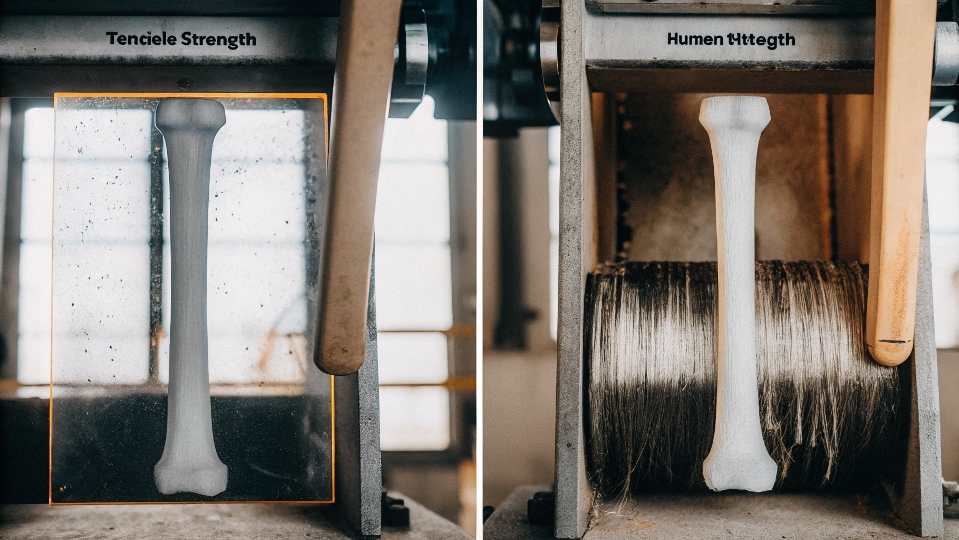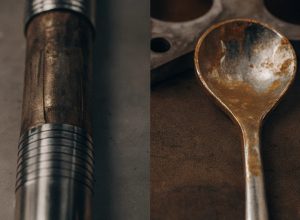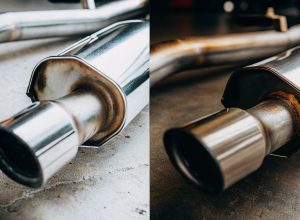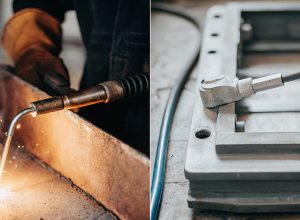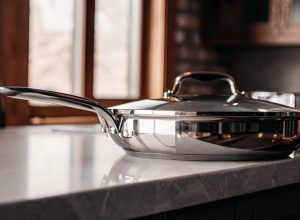Choosing the right material for a medical implant is critical. You need to know it can handle daily stress. Medical grade titanium offers a reliable solution for long-lasting performance.
Yes, medical grade titanium1 is significantly stronger than human bone. Its tensile strength is over five times greater, allowing it to withstand immense force. This superior strength makes it an ideal material for orthopedic implants2 like hip joints, spinal cages, and bone plates.
But strength isn’t the only thing that matters when putting a material inside the human body. It is the combination of strength, weight, and how the material interacts with the body that makes titanium so special. You need a material that works with the bone, not against it. Let’s explore exactly how strong it is and why other factors are just as important for medical success.
What is stronger, titanium or bone?
Comparing materials for implants can be confusing. A material that is too weak could fail. A material that is too stiff could damage the surrounding bone. Titanium offers superior strength without being overly rigid.
Titanium is much stronger than bone. Human cortical bone has a tensile strength around 150 Megapascals (MPa). Medical grade titanium alloy, like Grade 23, has a tensile strength over 830 MPa. This means titanium can handle far more pulling force before it breaks.
Strength is just one part of the story. Another important factor is the material’s stiffness, measured by its Young’s Modulus3. Bone is quite flexible, with a low modulus. Titanium is stiffer than bone but much more flexible than other metals like stainless steel. This is a huge advantage. It reduces a problem called "stress shielding4." Stress shielding happens when an implant is too stiff and carries most of the body’s load. The nearby bone doesn’t get enough stress, so it starts to weaken and lose density. Because titanium’s stiffness is closer to bone, it shares the load more naturally. This encourages the bone to stay strong and healthy. At our company, we often discuss this balanced profile with clients. It’s this combination of high strength and moderate stiffness that makes titanium a superior choice for working with bone.
| Property | Human Cortical Bone | Medical Titanium (Grade 23) |
|---|---|---|
| Tensile Strength (MPa) | ~150 | >830 |
| Young’s Modulus (GPa) | 15–20 | ~114 |
| Density (g/cm³) | ~1.9 | ~4.43 |
How strong is medical grade titanium?
You need specific data to make informed decisions. Vague claims about strength are not enough. Let’s look at the numbers to see why medical titanium meets such strict standards.
Medical grade titanium, specifically Grade 23, has a minimum tensile strength of 830 MPa. This is incredibly robust, providing reliable support for the most demanding applications. Its excellent strength-to-weight ratio also means it provides this strength without adding unnecessary weight inside the body.
The term for medical grade titanium is often Grade 23, or Ti-6Al-4V ELI. The "ELI" stands for "Extra Low Interstitials." This means it has very low levels of oxygen and iron. These low levels make the alloy more ductile and improve its fracture toughness5. This is critical for an implant. It needs to withstand not just a single strong force, but also millions of small, repetitive cycles of stress from daily activities like walking. This resistance to breaking under repeated stress is called fatigue strength6. I’ve met hundreds of purchasing managers and technical reps like Sophie in Canada. They always ask for material certifications. They need proof that the titanium meets standards like ISO 13485. At my company, Titonest, we a dhere to these strict certifications. It’s how we guarantee our material has the required tensile and fatigue strength for our clients’ peace of mind.
Beyond Tensile Strength: Fatigue Resistance
Fatigue resistance is perhaps even more important than simple tensile strength for an implant. A hip implant, for example, must endure over a million load cycles per year. Grade 23 titanium excels here, as it resists the formation of micro-cracks that can lead to failure over time.
Which grade of titanium is the strongest?
Not all titanium is the same. Choosing the wrong grade can compromise safety. You might think the "strongest" is always best, but this can lead to other problems.
The strongest common titanium alloy is Grade 5 (Ti-6Al-4V), with a tensile strength that often exceeds 900 MPa. For medical implants, however, the slightly less strong but more ductile Grade 23 (Ti-6Al-4V ELI) is the standard choice for its superior safety profile.
So why is Grade 23 better for medical use if Grade 5 is stronger? The answer lies in its chemical makeup and resulting properties. As I mentioned, Grade 23 has extra low interstitials. This small difference makes the metal more forgiving. It has better ductility and fracture toughness. This means it’s less likely to crack suddenly under stress, which is a vital safety feature when a component is inside the human body. I remember a conversation with Sophie, a technical sales rep I met at a trade show. She was helping a client decide between Grade 5 and 23 for a spinal fusion cage7. We discussed how Grade 238‘s ductility allows it to handle the tiny, constant shifts in the spine without becoming brittle over time. That insight helped her client make the right choice. It showed that for medical use, the "best" material isn’t always the strongest, but the most reliable.
| Titanium Grade | Common Name | Key Advantage | Typical Use |
|---|---|---|---|
| Grade 5 | Ti-6Al-4V | Highest Strength | Aerospace, Industrial |
| Grade 23 | Ti-6Al-4V ELI | High Strength + Ductility | Medical Implants |
| Grade 2 | Commercially Pure | Excellent Corrosion Resistance | Chemical Processing, Marine |
Which metal is stronger than bone?
Titanium is not the only metal used in medicine. You may wonder how other metals compare. Each has unique properties that affect its performance inside the body.
Several metals are stronger than bone. Medical grade stainless steel (316L), cobalt-chrome alloys, and titanium alloys all have much higher tensile strength. Titanium is often preferred for its excellent biocompatibility9 and a stiffness that is closer to bone, reducing long-term complications.
Let’s compare the main options. 316L stainless steel is strong and inexpensive, but it is heavy and can corrode over time, potentially releasing ions into the body. Cobalt-chrome is even stronger than titanium and extremely wear-resistant, making it great for the moving surfaces of knee and hip joints. However, it is very stiff, which can cause significant stress shielding4 and weaken the adjacent bone. It also has concerns about releasing metal ions. This is why major medical device companies like Zimmer Biomet and Stryker rely so heavily on titanium. From my experience in the industry, I know they value its perfect balance. Titanium is strong, lightweight, corrosion-proof, and, most importantly, biocompatible. The body accepts it without causing a reaction. At Titonest, our ISO-certified processes ensure we deliver titanium that meets this perfect balance.
| Metal | Strength vs. Bone | Key Pro | Key Con |
|---|---|---|---|
| Titanium (Grade 23) | ~5x Stronger | Best biocompatibility9, lightweight | Higher cost than steel |
| Cobalt-Chrome10 | ~6x Stronger | Excellent wear resistance | Very stiff, potential ion release worries |
| Stainless Steel (316L) | ~4x Stronger | Low cost, easy to manufacture | Heavy, can corrode over time |
Conclusion
Medical grade titanium is much stronger than bone. Its unique blend of strength, appropriate flexibility, and biocompatibility makes it the leading choice for safe and durable orthopedic implants.
-
Explore the advantages of medical grade titanium, including its strength and biocompatibility, essential for safe implants. ↩
-
Learn about various orthopedic implants and how materials like titanium enhance their performance. ↩
-
Explore how Young’s Modulus affects the performance of materials used in medical implants. ↩
-
Understanding stress shielding can help in choosing the right materials for long-lasting implants. ↩ ↩
-
Learn how fracture toughness impacts the reliability of materials used in medical implants. ↩
-
Learn about fatigue strength to understand how implants withstand repeated stress over time. ↩
-
Discover the materials used in spinal fusion cages and their impact on patient outcomes. ↩
-
Discover why Grade 23 titanium is preferred for medical implants due to its unique properties. ↩
-
Explore the importance of biocompatibility in ensuring the safety of medical implants. ↩ ↩
-
Discover the pros and cons of using Cobalt-Chrome in medical applications compared to titanium. ↩


